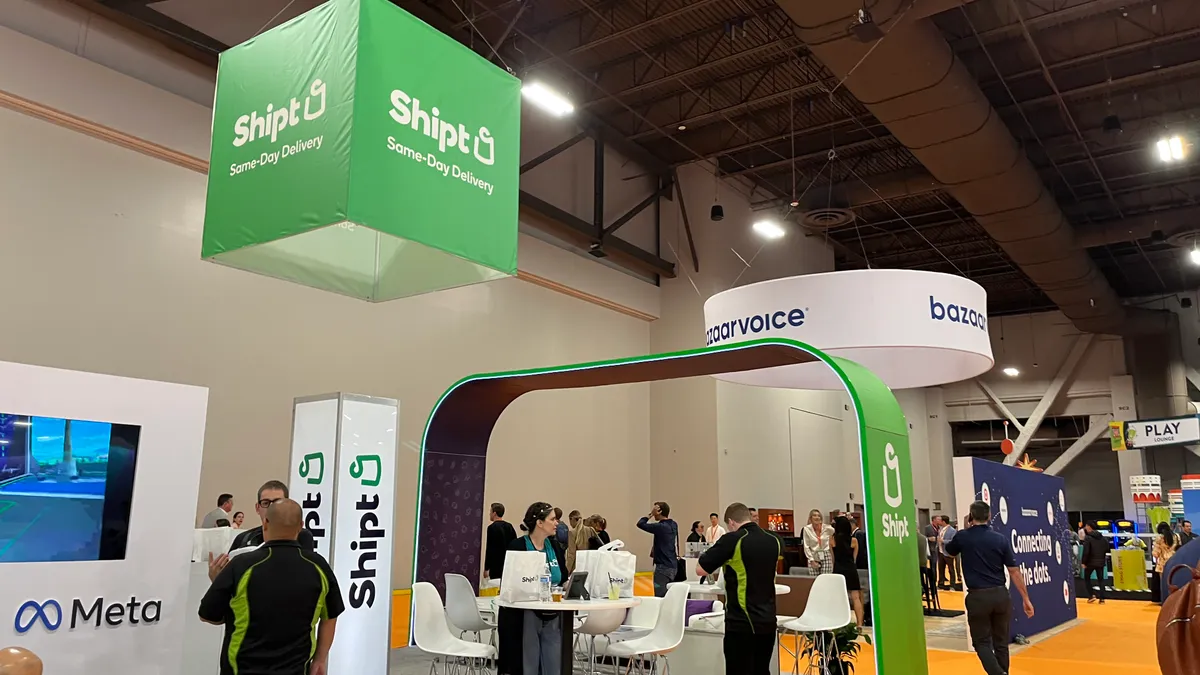LAS VEGAS — Every year, Groceryshop’s exhibition hall gives show attendees a peek into some of the biggest challenges and operational priorities that grocers are facing. This week was no different, with a host of technology vendors showing off a range of solutions that reflected an ongoing drive for efficiency, better data and an improved omnichannel shopping experience.
Here are a few tech companies that stood out.
Diebold Nixdorf
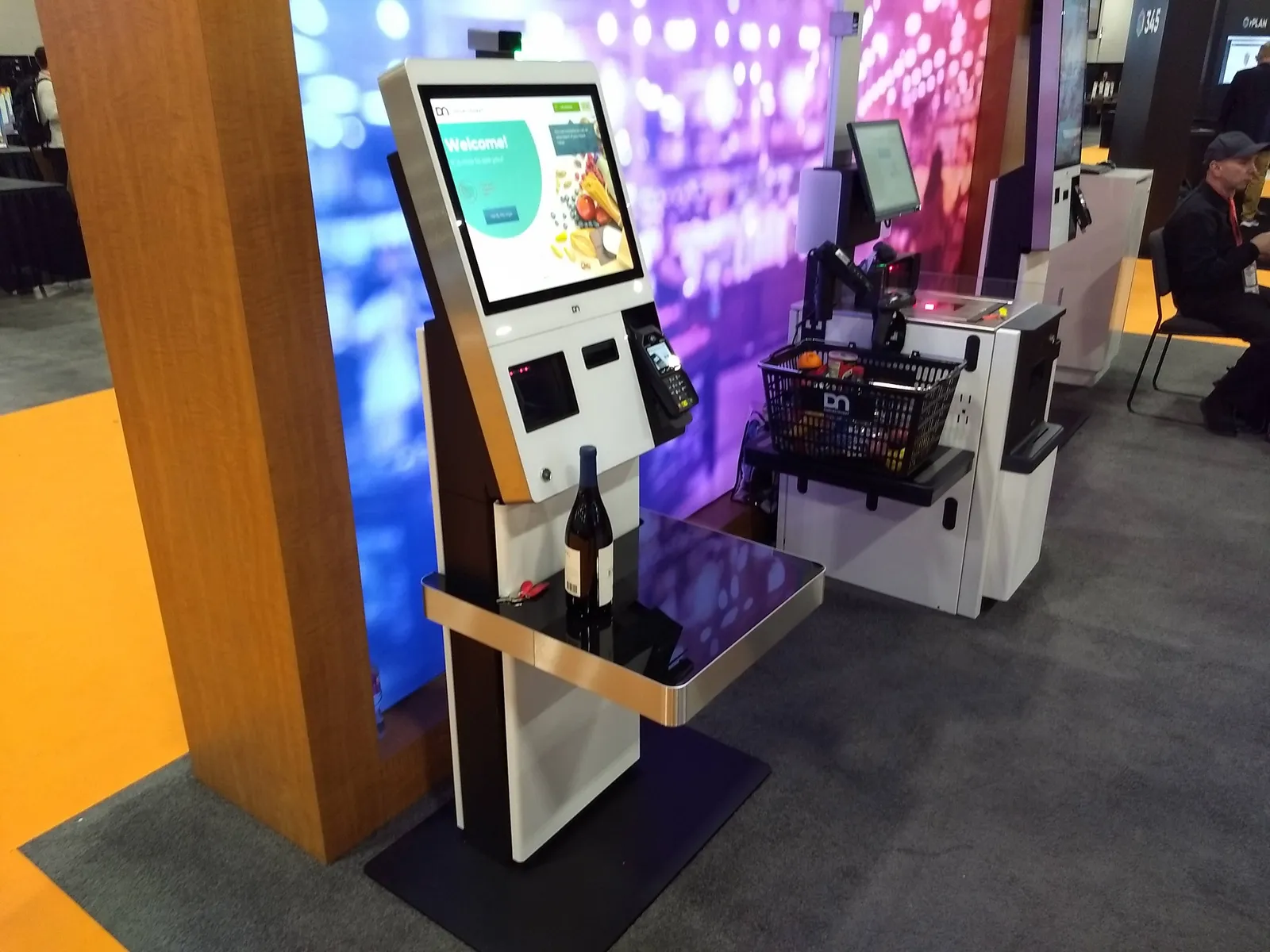
Diebold Nixdorf, known for making cash-dispensing machines for banks, used the exhibition to display automated equipment designed to speed up self-checkout in grocery stores. The company is looking to attract retailers with modular self-service checkout terminals designed to work with accessories from third-party manufacturers. The systems are intended to provide capabilities that augment the units’ core product-scanning functions, allowing them to handle tasks that ordinarily require human intervention.
The Ohio-based firm showed off an add-on unit that can estimate someone’s age, allowing shoppers to buy age-restricted items without having to interact with a store employee. When a person scans a product like a bottle of wine, the terminal prompts them to look at a camera attached to the top of the self-checkout unit, then automatically clears them to purchase the item if they look old enough.
Diebold Nixdorf also showed off a camera that connects to the scale on its self-checkout units and can identify produce, eliminating the need for a shopper to enter a PLU code. If the software needs help figuring out what a fruit or vegetable is, it uses that as an opportunity to expand its database.
BrightDrop
BrightDrop’s Trace Grocery Cart combines online order picking and staging into one tool. The cart, which is propulsion assisted and moves at a speed of up to 3 miles per hour, contains nine temperature-controlled bins, including chilled and frozen, into which workers can place shoppers’ orders. Workers can then wheel the cart out to the store’s curbside, where customers can gather their orders from the same bins (the carts currently still need an employee on-site to assist with order retrieval until QR codes get added to the bins).
The Trace Grocery Cart eliminates the need for grocers to store products in separate backrooms after picking orders, said Sandy Fedor, BrightDrop’s head of product management. The company aims to eventually allow retailers to deliver carts to locations like schools or train stations, allowing for remote pickup. Kroger recently tested the carts in Kentucky and will soon roll them out to more stores.
Deep North/Dell Technologies
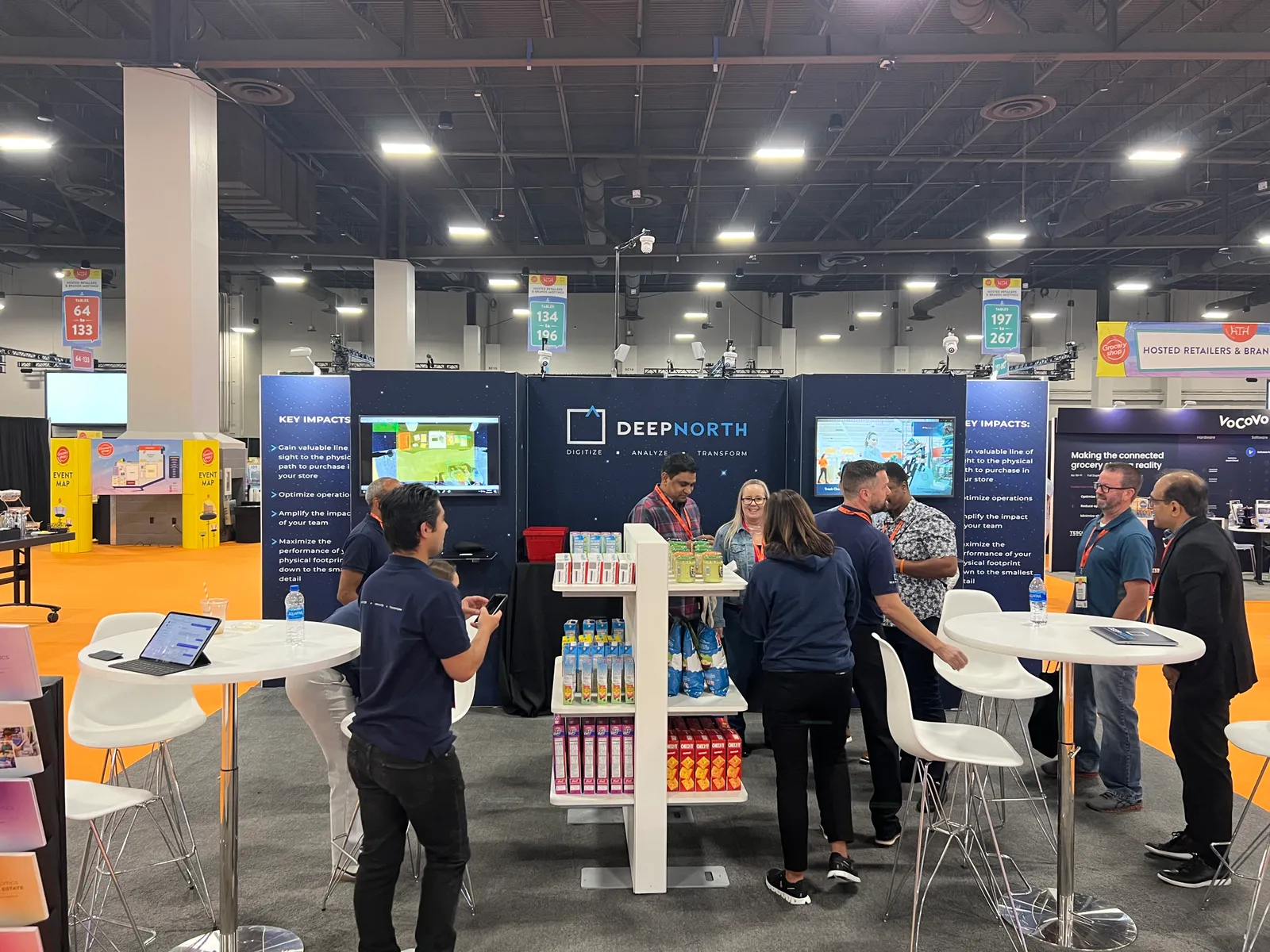
A few technology companies at Groceryshop touted the ability to capture data on shoppers’ behavior in stores by combining video with artificial intelligence. One of these was Deep North, which applies its video analytics with Dell’s edge computing technology to the existing video cameras that retailers operate in their stores. The system can measure foot traffic, product conversion rate and dwell times as well as monitor checkout lines. It can also collect demographic data — estimating age and gender with a high degree of probability, said co-founder and CEO Rohan Sanil — and curb theft from retail floors and backrooms.
Retailers can use video analytics to measure the effectiveness of merchandising strategies like endcaps and new departments. They can also use the data they collect to more effectively negotiate slotting fees with suppliers. “You have to treat every store as a website,” said Sanil.
Phononic
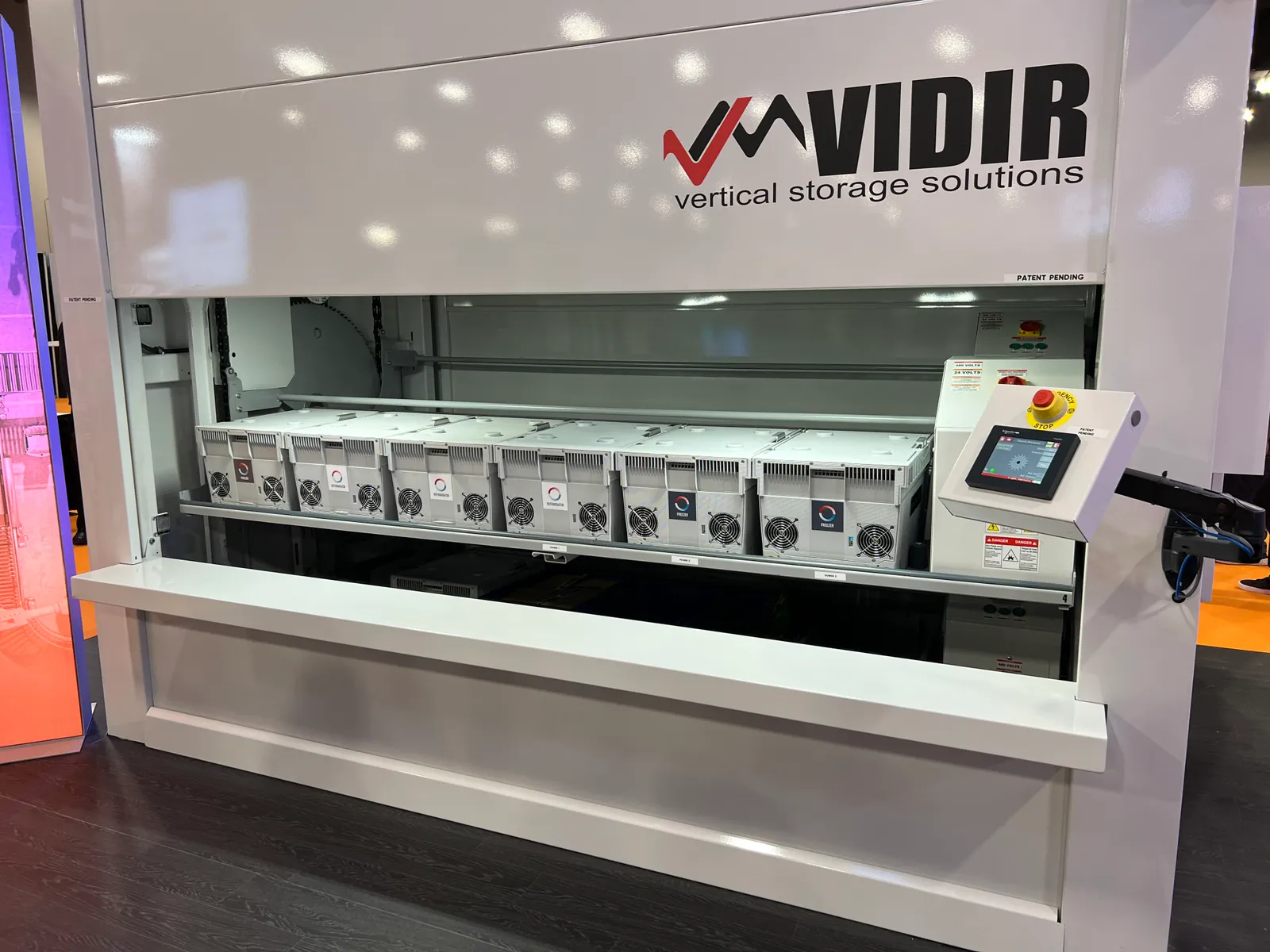
As retailers look for ways to make e-commerce fulfillment faster for retailers, cold-chain technology supplier Phononic displayed self-contained bins that keep food cold and can be loaded into vertical stacking machines to save floor space in stores or other facilities.
The totes, equipped with cooling technology Phononic developed that uses only carbon dioxide and water to control temperature, are designed to sit on movable shelves in the stacking units, which are made by companies like Vidir Solutions. Employees summon a tote using a control panel that prompts the stacking unit to retrieve the bin and bring it down to floor level. The vertical units, which are 18 feet tall, are currently piloting at 20 Walmart Canada stores, said Matthew Walker, vice president of sales with Phononic. He said the units could be a “middle ground” storage solution for grocers that want to move beyond storage racks and cold rooms but aren’t yet ready to invest in a fully automated solution like micro-fulfillment.
Returnity
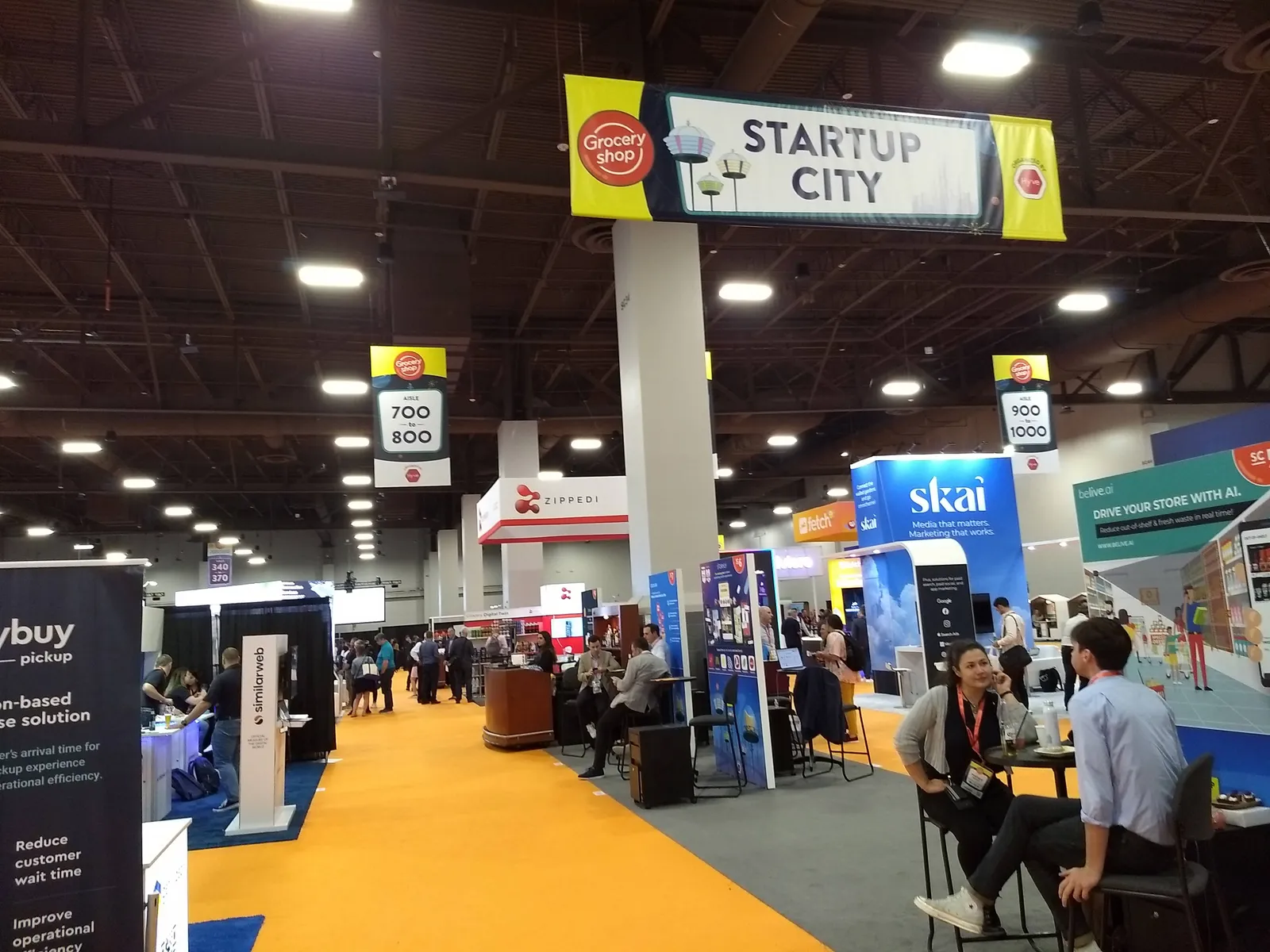
As grocers move away from disposable plastic bags in their stores, Returnity hopes they will turn to its reusable packaging as a way to keep waste out of landfills when delivering items to e-commerce customers. The startup, which supplies retailers with packaging intended to be returned by consumers after their products are delivered, was among the companies stationed in an area of the exhibition hall known as Startup City.
Returnity was one of nine firms singled out by the Consortium to Reinvent the Retail Bag in 2021 as part of the group’s Beyond the Bag Initiative.
The startup is focused on avoiding situations where shoppers lack an incentive to send the packaging back and believes the grocery industry has reached a point where shoppers will be willing to take advantage of its solution, said Returnity CEO Michael Newman.




